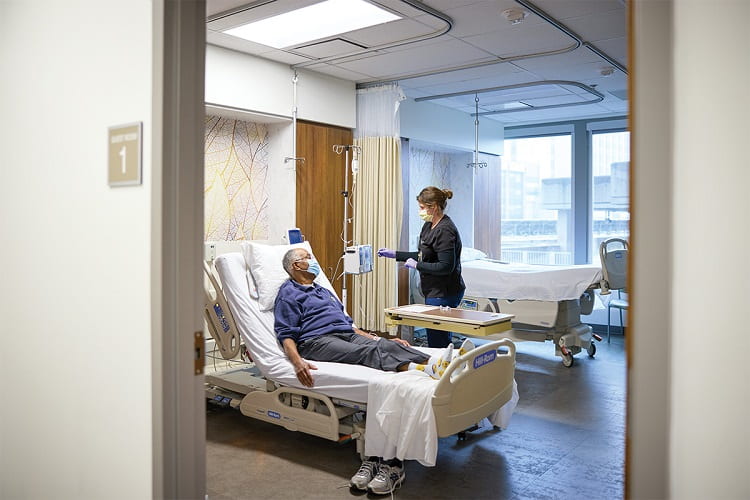Alzheimer’s disease is like two deaths, said Stephanie Griffin, whose father died of the brain disease in 2015.
“It’s horrific,” she said. “First, you watch them lose the ability to talk, to think, to do any of the things they used to do. And then, to see them pass because of it? It’s just … it’s a lot.”
Caring for a loved one with this fatal, progressive neurodegenerative disease is heartbreaking and exhausting. The challenges are particularly daunting in the African American community, where the disease is often poorly understood — despite Alzheimer’s being about twice as common among African Americans as other Americans.
Yet, African Americans largely have been left out of Alzheimer’s studies nationwide. For example, Aduhelm, a controversial Alzheimer’s drug approved in 2021, was evaluated in clinical trials involving just 19 people self-identified as Black or African American out of 3,285 volunteers.
These lower numbers reflect a failure by the mostly white research community to understand how African Americans view Alzheimer’s disease and participation in medical research.
Washington University has worked hard to break the national pattern. In 2000, it established one of the country’s earliest groups dedicated to increasing African American participation in Alzheimer’s research: the African American Advisory Board at the Charles F. and Joanne Knight Alzheimer Disease Research Center (Knight ADRC). Today, African Americans make up 17% of Knight ADRC volunteers, up from 3% in 1999.
“If you only study Alzheimer’s in white people, you only learn about Alzheimer’s in white people,” said John C. Morris, MD, the Harvey A. and Dorismae Hacker Friedman Distinguished Professor of Neurology and the director of the Knight ADRC. “Look at Aduhelm. Doctors just don’t know whether African Americans will benefit from it at all, or in the same way, or have the same side effects profile, because we don’t have the data.”
Alzheimer’s is a complex disease. Myriad biological and social factors influence who gets diagnosed, at what age and how quickly the condition worsens. These factors include family history, gender, education level, head injury, health conditions such as diabetes and high blood pressure, and cultural expectations around aging.
